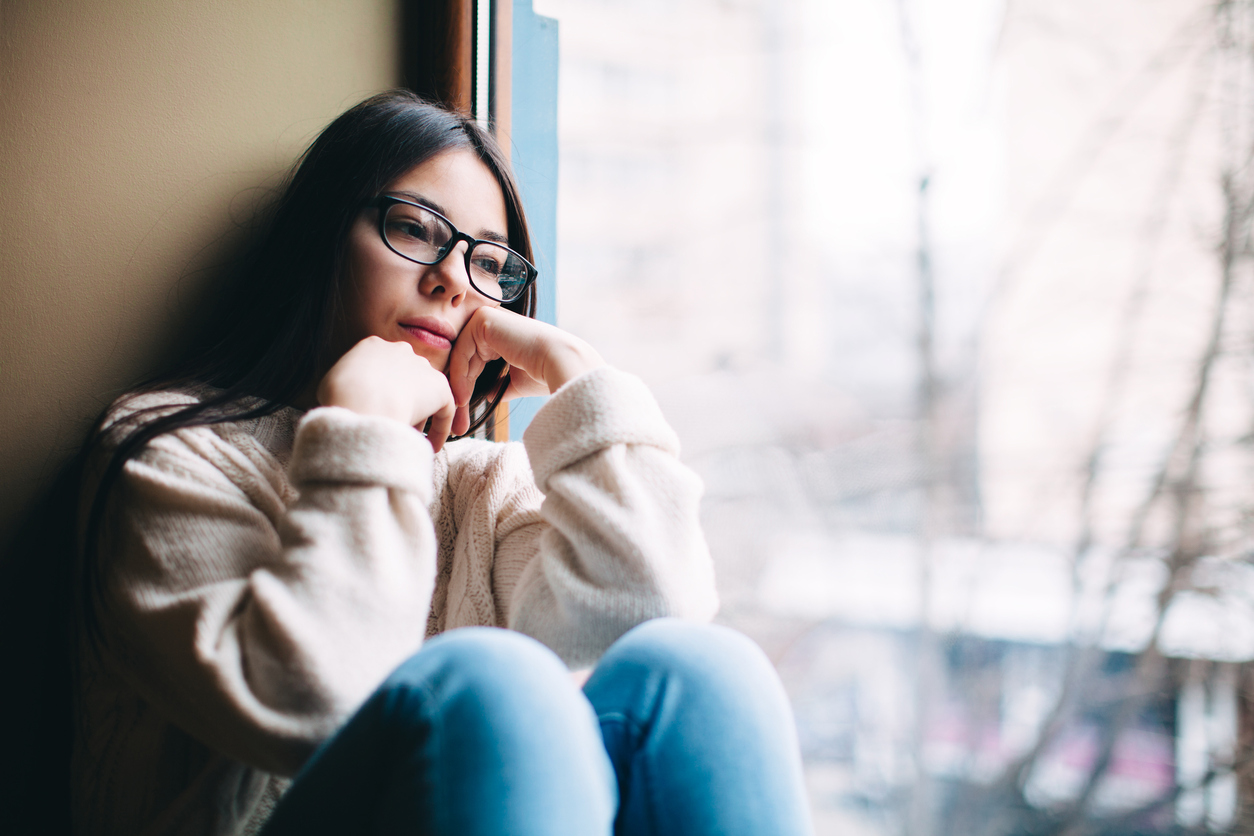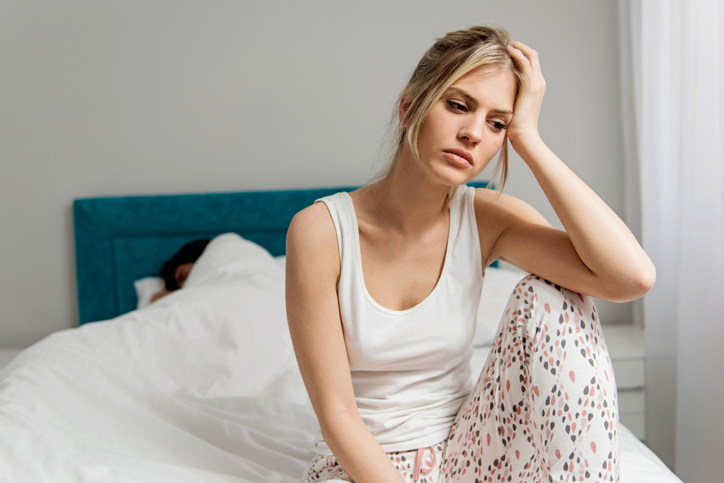Here’s an issue women don’t often feel comfortable talking about, low sex drive.
But we should, because it’s a lot more common than you might think.
And we’re not just talking about a short dry spell after childbirth, which many moms experience, we’re talking about something that goes deeper and can last much longer.
This underreported sexual concern can take a toll on a woman’s romantic relationship and her self image. Yet most women have never even heard of it.
And despite how common it is – the condition, known as hypoactive sexual desire disorder (HSDD), can be difficult to resolve.
HSDD is a complex issue, with a number of factors at play.
But when it comes to getting to the root cause of a low sex drive, recognizing there’s an issue and talking about it are good first steps.
Check out these 3 powerful supplements designed for women:

This powerful probiotic helps restore and maintain a healthy balance of good bacteria and pH levels for optimal vaginal health.
- Probiotic for Women, Vaginal Health and pH Balance
- 10 Billion CFU, Gluten Free

OLLY's Lovin’ Libido capsules are packed with traditional botanicals to help boost desire, enhance arousal and even support satisfaction for women.
- Ashwagandha, Maca & Damiana
- Vegetarian
Low Sex Drive
Sexual desire is a complicated dance between psychology, physiology, and environment.
It makes sense then that the female libido will naturally ebb and flow as our circumstances change. This is normal and expected.
Particularly for new moms recovering from childbirth who are still dealing with huge hormonal shifts and healing bodies.
RELATED: Sex After Childbirth, How To Get Back To Getting It On
But that’s not what we’re talking about. We’re talking about when you have thoughts like, ‘I am NEVER in the mood’.
We’re talking about when your lack of desire and low sex drive start to cause you anxiety and/or stress. That’s when something larger may be at play.
An estimated 30 to 39 percent of women in any given population will report little or no interest in sex at any given time in their lives. But this doesn’t necessarily equal a problem or constitute a sex disorder, particularly if the woman is not with a partner at the time.
If you or someone you know is starting to worry about their lack of sexual interest, it’s important to talk to a health care professional to determine if HSDD may be the cause. Here are some indicators to watch out for.

What Is HSDD?
HSDD is a chronic and ongoing lack of interest in sex by women who previously had a normal sex drive.
A woman’s libido will naturally rise and fall throughout her lifetime, and it is not uncommon to lose interest in sex for periods of time.
What characterizes HSDD is when the lack of desire is persistent, and it causes you stress and interpersonal difficulties as a result.
If you are experiencing a period of low sex drive, but you’re not terribly concerned it, then you probably DO NOT have HSDD.
But if your low libido is weighing heavy on your mind, or negatively impacting your relationship, keep reading.
RELATED: Bringing Back The Romance After Baby Is Born
More Common Than You Think
If a low or non-existent sex drive is causing issues for you and your relationships, HSDD may be the cause. And you are not alone.
According to the Society for Women’s Health Research, HSDD is the most common female sexual dysfunction and affects about 1 in 10 women.
We are not just talking about postmenopausal women, HSDD affects women of all ages, from their 20s on up.
The Mayo Clinic reports that as many as 40% of women will experience HSDD at some point in their lives. Which is why it’s mind-blowing that most women haven’t heard of it.
Symptoms Of HSDD
The symptoms of HSDD revolve around a decrease in sexual desire. Women with HSDD are not only “not in the mood” for sex, they also frequently don’t think about sex, fantasize about sex, or want to initiate sex.
In addition, they experience distress due to their lack of sexual thoughts or desires and it puts a strain on their relationship with their partner.
70% of women with low sexual desire experience personal and interpersonal issues as a result, according to research published in the Journal of Sexual Desire.
Women with HSDD will describe their emotional state using terms like, “frustrated”, “missing something”, or “disconnected”.
If low libido has an impact on your overall emotional well-being, HSDD may be the culprit.
Low Sex Drive: Cause & Treatment
Sexual desire is a complex interplay of social, psychological, and biological components. As such, the underlying causes of HSDD are complex and range from physical conditions (such as hormonal imbalances or illness), to psychological and emotional factors.
Due to the large number of potential causes and contributing factors, there is no one HSDD cure-all that works for all women.
This is why it is crucial to approach your healthcare practitioner to discuss your concerns. There is no need to suffer in silence!
Your doctor can conduct an in-depth interview to understand the unique conditions surrounding your sexual desire and experience.
They can also test you for underlying medical conditions to help devise the best course of treatment for you.
Treatment may consist of hormone therapies, use of a drug like Addyi (flibanserin), herbal supplements, counseling, sex therapy, or a combination of these.
Chances are there is at least one treatment option out there that can help!
You may also want to include your partner in the discussions and treatment decisions. Open communication and intimacy can be an integral part of sexual desire.
Sexual satisfaction shouldn’t be a taboo topic for women.
If you are experiencing low libido, and it’s impacting your relationships or self esteem, talk to your doctor and partner.
Let’s bring these issues out of the shadows!
Because every woman that wants to should be able to experience the pleasure and intimacy of a satisfying sex life.
To Summarize:
• HSDD is a chronic and ongoing lack of interest in sex by women who previously had a normal sex drive.
• An estimated 30 to 39 percent of women in any given population will report little or no interest in sex at any given time in their lives.
• HSDD is the most common female sexual dysfunction and affects about 1 in 10 women.
• The symptoms of HSDD revolve around a decrease in sexual desire.
• Women with HSDD are not only “not in the mood” for sex, they also frequently don’t think about sex, fantasize about sex, or want to initiate sex.
• Women with HSDD often report that they don’t find pleasure in sex or have feelings of guilt or shame when engaging in sexual activities.
• Other symptoms can include difficulty reaching orgasm, lack of genital lubrication, and pain during intercourse.
• The cause of HSDD is still not completely understood but it is believed to be largely due to psychological, emotional, and physical factors.
• These can include stress, anxiety, depression, relationship issues, medical conditions (like diabetes or thyroid problems), medications (antidepressants are a common culprit), and hormone imbalances.
• Treatment for HSDD may involve lifestyle changes like getting more exercise and eating a healthy diet, prescription medications (like testosterone or bupropion), counseling, and sex therapy.
• HSDD is treatable and many women have reported experiencing improved symptoms with the help of professional treatment. It is important to remember that HSDD can be an emotionally difficult condition for women to deal with and it is important to seek help from a qualified healthcare professional.
• Women should also talk openly and honestly with their partners about their feelings and needs as this can be an important part of treatment for HSDD. With the right support and treatment, women can enjoy fulfilling and enjoyable relationships.
• If you are experiencing problems with low sexual desire, it is important to talk to your healthcare provider. He or she can provide advice and potentially help you find a treatment plan that works for you.
Good luck!
To Learn More About HSDD:
RELATED: Sex After Kids – Are You Lovers Or Roommates?
SHARE what might cause low sex drive in women on Facebook and Pinterest by clicking the buttons below.













